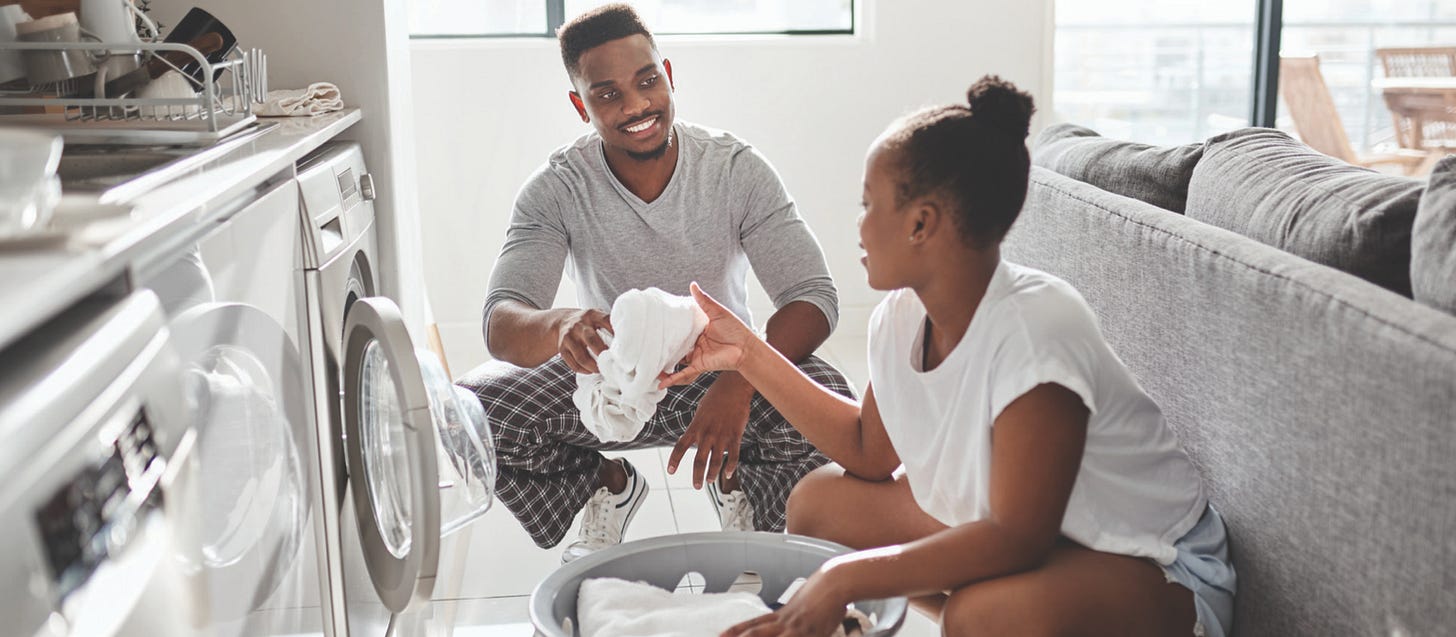We partnered with Public Exchange and researchers from the USC Dornsife Center for the Changing Family to dive deeper into the effects of household labor inequities.
What Did We Find?
Uneven domestic labor burdens—especially for planning and coordinating tasks—are associated with increased symptoms of depression, stress, and burnout.
The Solution? Fair Play.
Researchers found that using Fair Play to make domestic labor more equitable among couples is linked to improved mental health and relationship quality.1
The Problem
Fair Play Cards Have Meaningful Links with Overall Well-Being:
Relationship Quality: When mothers held more household labor tasks, they were significantly less satisfied with their relationship with their partners.
Perceived Stress: When mothers held more household labor tasks, they reported more perceived stress.
The impact of holding the Cognitive Load (Planning) specifically…
Depression: When mothers engaged in more cognitive household labor (Planning) than their partners, they reported more depressive symptoms.
Burnout: When mothers engaged in more cognitive household labor (Planning) than their partners, they reported more symptoms of exhaustion, overwhelm, and burnout.
Physical Health: When mothers engaged in more cognitive household labor (Planning) than their partners, they reported worse physical health.
Mental Health: When mothers engaged in more cognitive household labor (Planning) than their partners, they reported worse overall mental health.
Mothers are doing it all…
Or almost all of it. Overall, mothers reported greater responsibility than their partners for the cognitive labor of 29 out of 30 tasks and the physical household labor for 28 out of 30 tasks.
Taking out the garbage was the only task for which partners were responsible for both the cognitive (Planning) and physical labor (Execution), and home maintenance was the only other task for which partners were responsible for the physical labor.
The Solution
Fair Play seeks to elevate the value of care work and advance gender equity at home. By treating the household as our most critical organization, this approach has the potential to make a meaningful impact in every household and drive cultural change, thereby improving not only women’s lives but also the lives of all household members. By guiding couples to share domestic tasks more equitably, the Fair Play Method aims to enhance overall well-being—starting within the home.
Our research finds that Fair Play helps us understand domestic labor imbalances and can also make mothers healthier and happier. The Fair Play Method can be an effective tool for creating more domestic labor equity, which in turn improves mental health and overall relationship quality.
61% of participants who participated in at least some of the Fair Play Method saw an increase in overall egalitarianism at home (56% cognitive labor; 54% instrumental labor).
Interested in implementing the Fair Play Method in your home?
We have a new digital course coming soon! Sign up below to be the first to know when the course launches: Fair Play Course Waitlist*
*The link will redirect you to the full report, but your name will be added to waitlist.
Participants: We studied participants across two separate cohorts—one featuring mothers from across the country with at least one child under the age of 3 and the other composed of employees of a Fortune 500 healthcare company.




